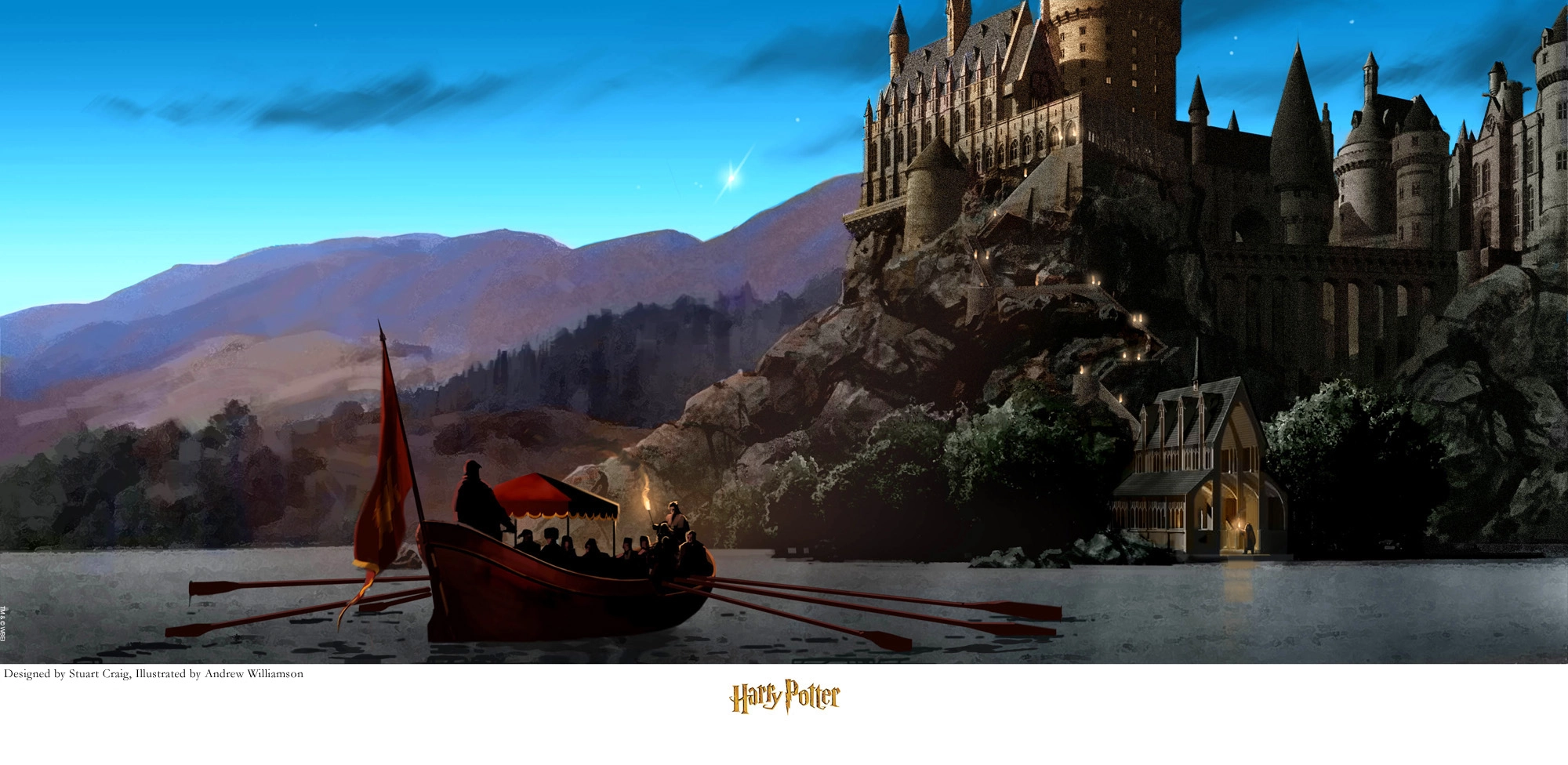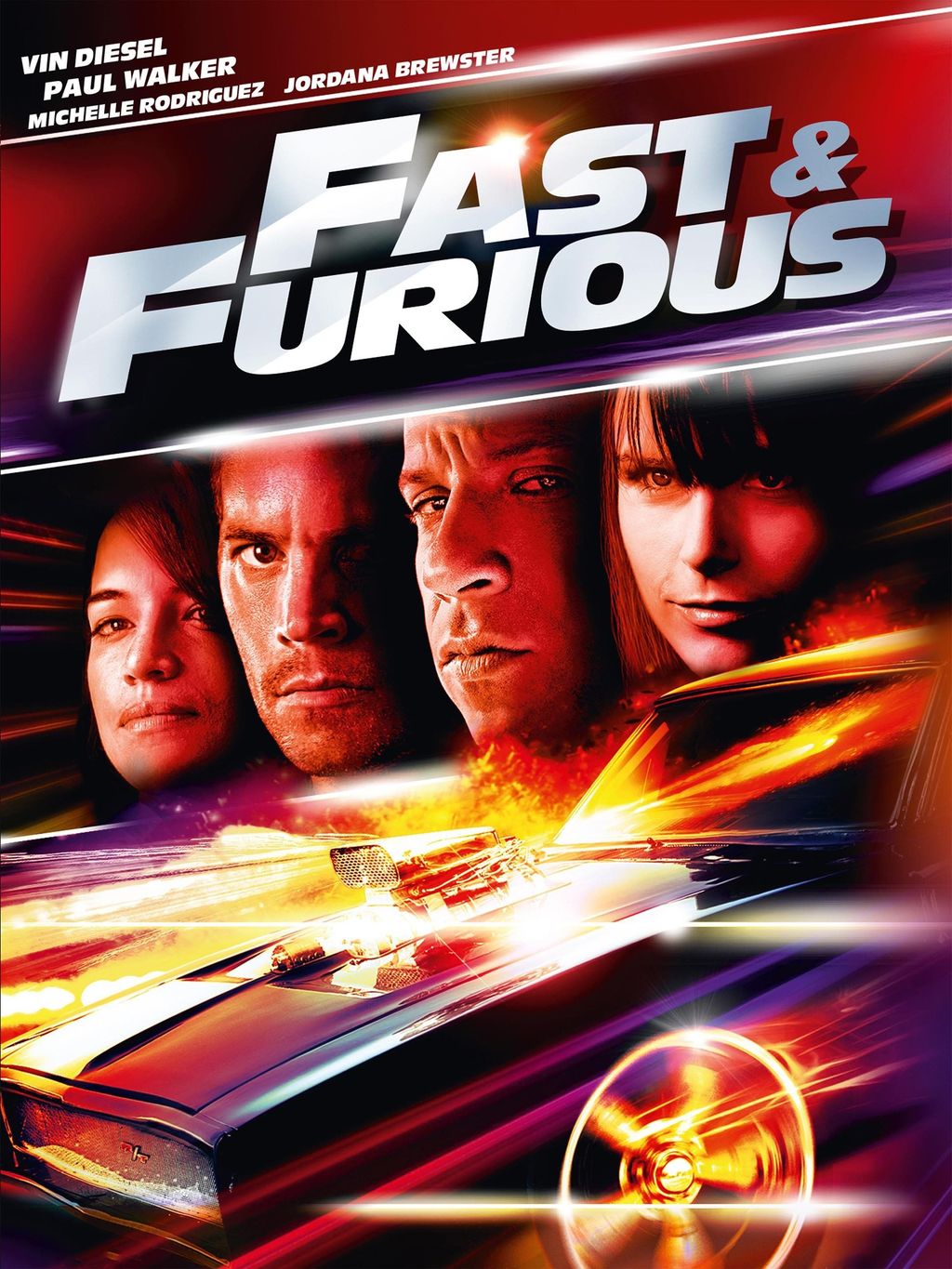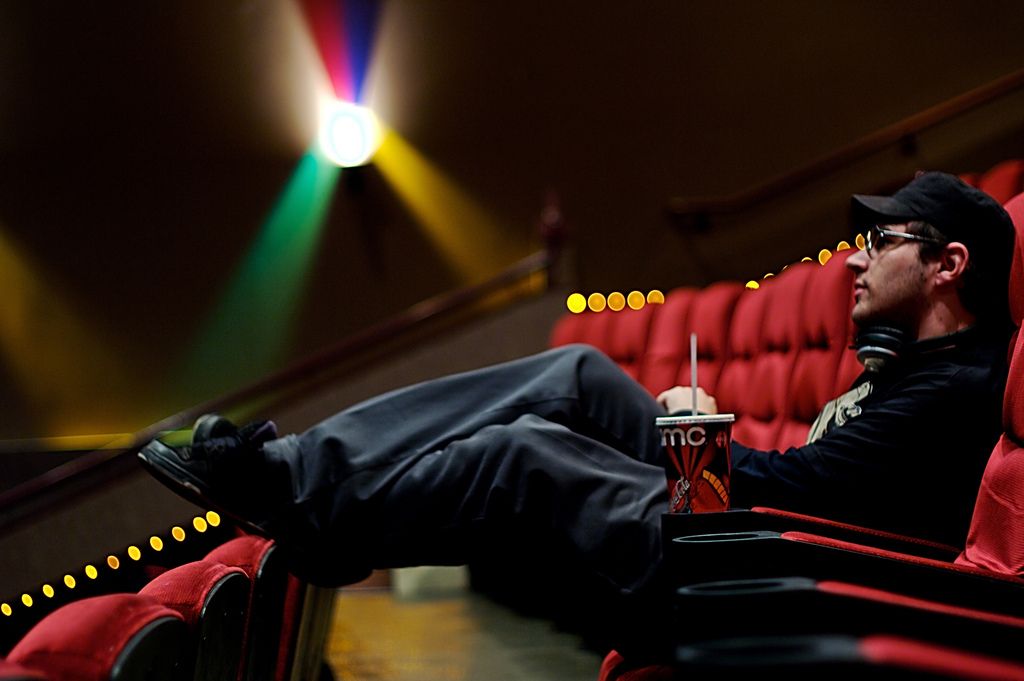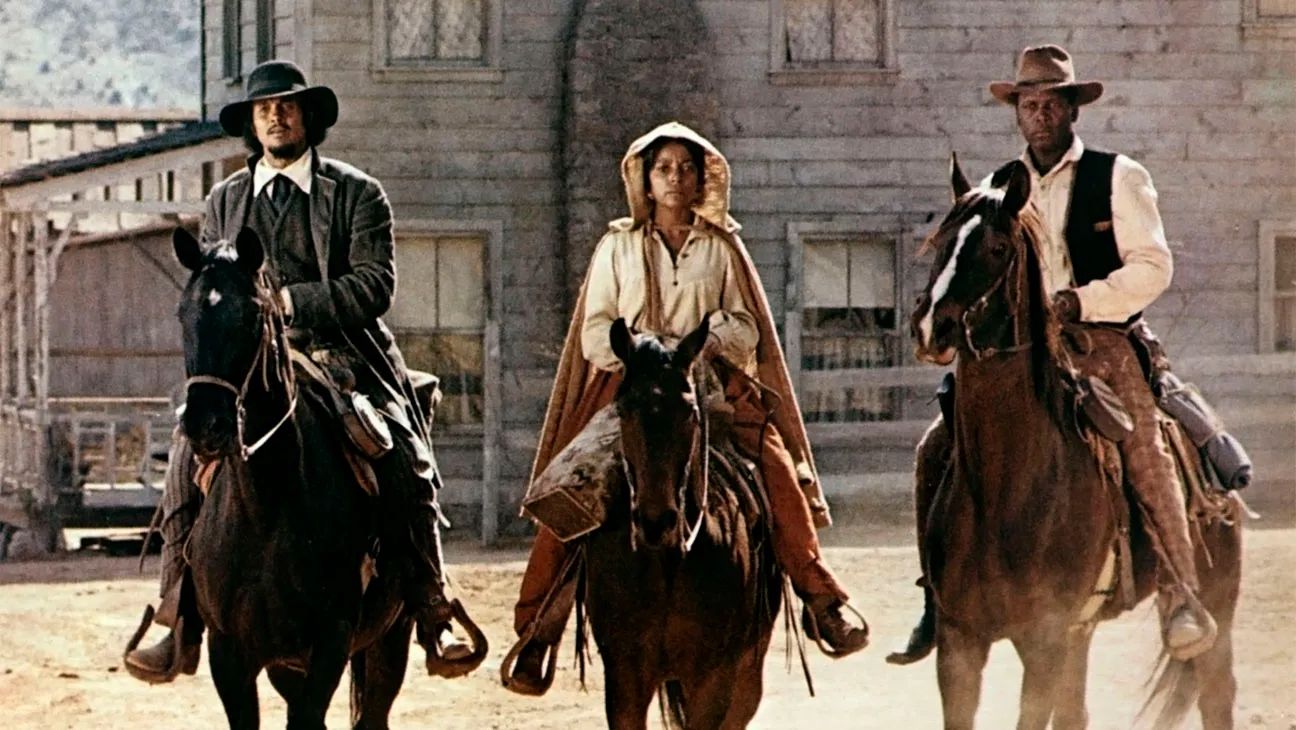
Oh, Hollywood, you’re always keeping us on our toes, aren’t you? From superhero sagas to epic space adventures, you churn out cinematic wonders that keep us glued to our screens. But let’s be real for a sec: there’s a trend that’s been gaining serious traction lately, and it’s got us all a little conflicted. We’re talking about reboots, remakes, and “requels” – you know, those shiny new versions of beloved stories that sometimes, just sometimes, hit all the right notes.
We totally get that sometimes a reboot can actually improve on the original material, offering a fresh perspective or updating effects for a new generation. However, those kinds of remakes, sequels, and “requels,” as some have been called, are few and far between, as far as we are concerned. More often than not, what we end up with are rehashes that miss the mark, lacking the heart, soul, or sheer genius that made the originals so special.
And honestly, for some movies, trying to recreate that lightning-in-a-bottle moment isn’t just difficult, it’s straight-up impossible. We’re talking about films that aren’t just great, they’re foundational. They’re woven into the very fabric of pop culture, shaping generations and sparking endless conversations. So, let’s cut to the chase and chat about the real MVPs of the silver screen – those absolute classics that, no matter how tempting it might be, Hollywood should *never* even think about touching with a reboot. These aren’t just movies; they’re cultural landmarks, artistic achievements, and moments in time that simply cannot be replicated. Get ready, because we’re taking a deep dive into why these legendary films need to be left alone, preserved in their original glory for all time.

1. **Back to the Future (1985)**Talk about a quintessential time-travel adventure! Robert Zemeckis’s *Back to the Future* isn’t just a movie; it’s an experience that has “spellbound audiences for decades.” It’s got that undeniable charm, a narrative that flows effortlessly, and a story that somehow manages to be both complex and incredibly easy to get lost in. Seriously, how many times have you wished you had a DeLorean to pop back in time?
A huge part of its enduring magic comes from the phenomenal chemistry between Michael J. Fox as Marty McFly and Christopher Lloyd as Doc Brown. Their dynamic is simply irreplaceable, delivering an “ever-pleasing storyline that no movie can replace.” The script, the pacing, the iconic moments – it all blends together into something truly special that has stood the test of time, proving that some stories are just perfect as they are.
The sentiment that this film is untouchable isn’t just coming from us fans, either. Robert Zemeckis himself has “vehemently opposed any remake,” stating that “so long as he and co-writer Bob Gale live, a reboot is out of the question.” That’s a pretty powerful stance from the very creators, telling you just how sacred this narrative is to them, and rightfully so. It’s a testament to their original vision that they feel such a strong protective instinct over their creation.
And let’s be real, out of all the incredible films we’re talking about today, *Back to the Future* is probably “the most likely to get a remake, no matter how ill-advised that is.” It’s got that wide appeal, that global recognition, that makes it a studio’s dream. But truly, “Doc and Marty… are too iconic to be replicated or challenged.” Trying to recast these roles would be like trying to replace the wheels on a perfectly functioning, souped-up time machine – why mess with perfection?
Beyond the perfect casting and story, there’s also a poignant reality that makes a reboot even more unnecessary. The context reminds us of “Fox’s ongoing battle with Parkinson’s Disease and Lloyd’s advancing age,” which means “it’s unlikely the pair will ever reunite for a reboot.” This only solidifies the original’s place as a singular, unrepeatable cinematic event. It’s a beloved film that deserves to be cherished in its original form, not reinvented.
Read more about: Prepare to Scream: 14 Sci-Fi Horror Films That Will Absolutely Chill You to the Bone!
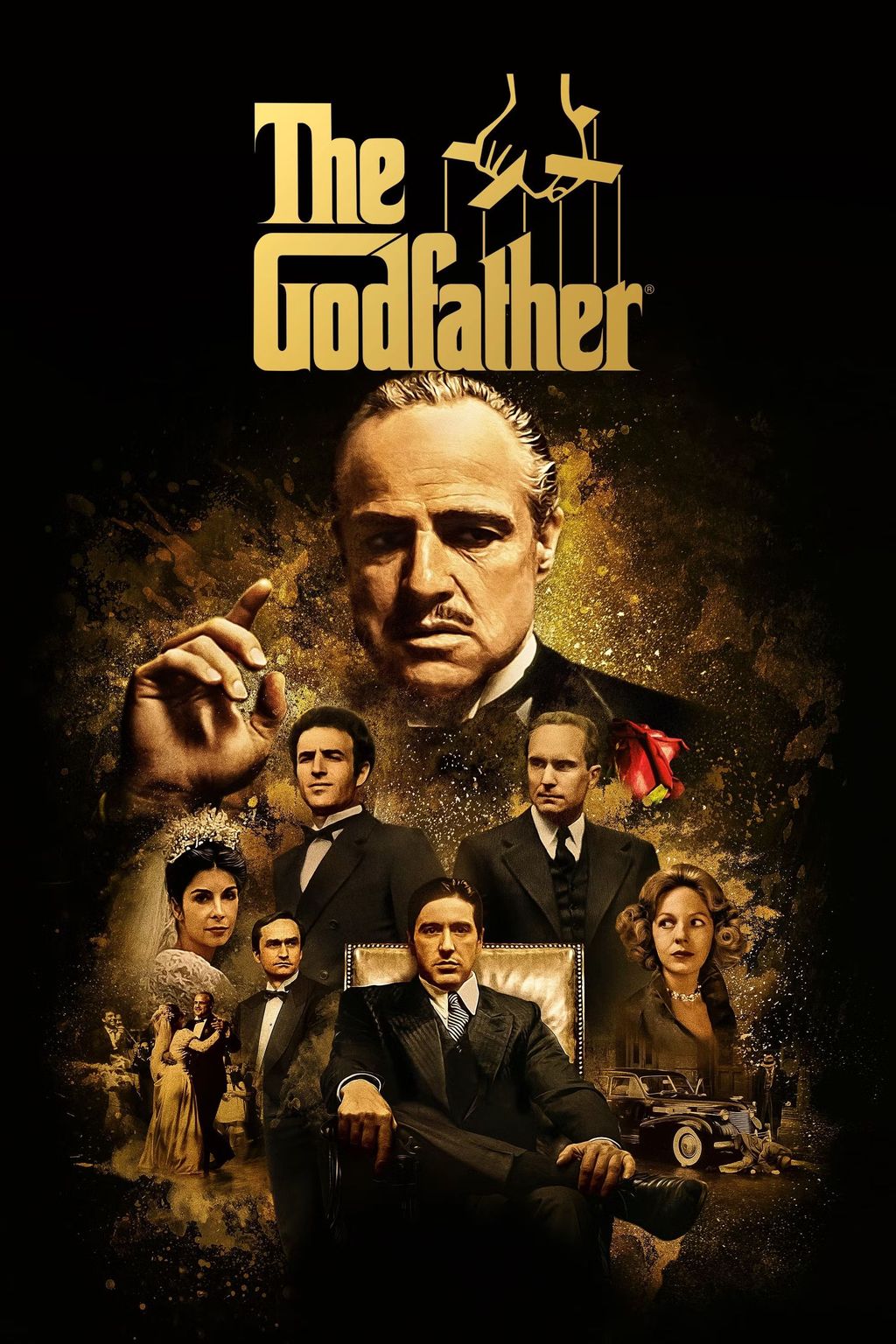
2. **The Godfather (1972)**Step into the world of the Corleones, and you quickly realize why Francis Ford Coppola’s *The Godfather* isn’t just a film; it’s “a true masterpiece of cinematic film.” This isn’t just some gangster flick; it “probes deep into the ills of family and power within the Mafia,” offering a complex, layered look at loyalty, ambition, and the murky ethics of a criminal empire. It’s drama with a capital D, but also a profound character study that resonates deeply.
The film’s impact is monumental, largely thanks to “Marlon Brando’s iconically educative role of Vito Corleone.” Seriously, who can forget his gravelly voice, his measured wisdom, and that imposing presence? Brando’s performance is a masterclass, one that budding actors study and filmmakers revere. It’s a performance that doesn’t just define a character; it defines an entire era of acting.
But it’s not just Brando. The overall “imagery of the film and its intricate storyline, cements it in film history.” Every frame is meticulously crafted, every plot twist earned, creating a narrative tapestry that is both gripping and emotionally devastating. It’s a film that demands your attention, rewards it with incredible storytelling, and then stays with you long after the credits roll.
Honestly, “to remake such a classic would be redundant and sacrilegious.” *The Godfather* isn’t just a movie; it’s a cultural pillar. It set the standard for an entire genre, influenced countless filmmakers, and gifted us lines and scenes that are instantly recognizable. Its magic lies in its original, groundbreaking execution, making any attempt to redo it feel like an unnecessary insult to cinematic genius. It’s just perfect as it is.
Read more about: From ‘Frankly’ to ‘Force’: Unpacking the 13 Movie Quotes That Absolutely Defined Cinema

3. **Casablanca (1942)**Here’s looking at you, kid! *Casablanca*, directed by Michael Curtiz, is more than just a movie; it’s a timeless “romantic drama set during World War II” that continues to capture hearts generations later. If you haven’t seen it, you’re missing out on some of the most enduring lines and cinematic romance ever put to screen. Seriously, the dialogue alone is enough to earn it a spot on any “best of” list.
The film is famed for its “incomparable lines,” with “Here’s looking at you, kid” being perhaps the most famous, but there are so many more quotable gems throughout. Beyond the sharp script, the undeniable “chemistry between Humphrey Bogart and Ingrid Bergman that spills onto the screen simply cements it in the classic category.” You feel every longing glance, every conflicted emotion, every ounce of their unspoken connection. It’s pure, unadulterated cinematic electricity.
What truly elevates *Casablanca* to untouchable status is that “the beauty of the film lies in the historical context it falls in and the era that it represents.” It wasn’t just a movie; it was a reflection of its time, capturing the anxieties, hopes, and moral ambiguities of a world at war. This inherent connection to history gives it a weight and authenticity that can never be artificially recreated.
Trying to reboot this film would be not just “ill-advised,” but arguably impossible without losing its very essence. You can’t simply transplant its story to a new era without stripping away the vital historical backdrop that makes it so profound. It’s a film that belongs to its moment, and its power is intrinsically tied to that specific time and place. It’s a true icon that should be left in its glorious, original form.
Read more about: Beyond Horror: An In-Depth Look at Stephen King’s Unexpected Top 10 Films of All Time

4. **Schindler’s List (1993)**Steven Spielberg’s *Schindler’s List* is a film that doesn’t just entertain; it profoundly moves and educates. It’s a “poignant portrayal of the Holocaust, chronicling the real-life efforts of Oskar Schindler to save Jews from Nazi persecution.” This isn’t just a story; it’s a monumental historical testament, handled with the utmost respect and gravity, which makes any thought of a remake feel… well, wrong.
The power of this film is immense, driven by its stark “black-and-white cinematography and powerful performances” that combine to “make it a profound cinematic experience.” The choice of black and white isn’t merely aesthetic; it amplifies the gravitas of the subject matter, stripping away distractions and focusing on the raw human drama and unimaginable suffering. It’s a choice that grounds the film in a historical reality, rather than a fictionalized account.
Every element of *Schindler’s List* works in unison to create a piece of art that is both deeply disturbing and ultimately, incredibly hopeful. The performances are unforgettable, carrying the weight of history and humanity with incredible grace and heartbreaking realism. It’s the kind of film that leaves you speechless, reflecting on the darkest chapters of human history and the incredible acts of courage and compassion that shone through.
Because of its sensitive subject matter, its historical significance, and its artistic perfection, “recreating such a sensitive and impactful film would be both challenging and unnecessary.” It’s a definitive cinematic statement on a truly harrowing period, and its impact is deeply tied to its original vision and execution. Some stories are told so perfectly, with such reverence and artistry, that they become sacred. This is one of them.
To even consider remaking *Schindler’s List* would be to question the very power and completeness of Spielberg’s original work. It’s a film that doesn’t need updating; its message is timeless, its emotional resonance perpetual. It stands as a powerful reminder, a cinematic monument, that future generations should experience exactly as it was created.
Read more about: Beyond the Screen: 14 Must-Watch Movies You Didn’t Know Were Based on Mind-Blowing True Stories
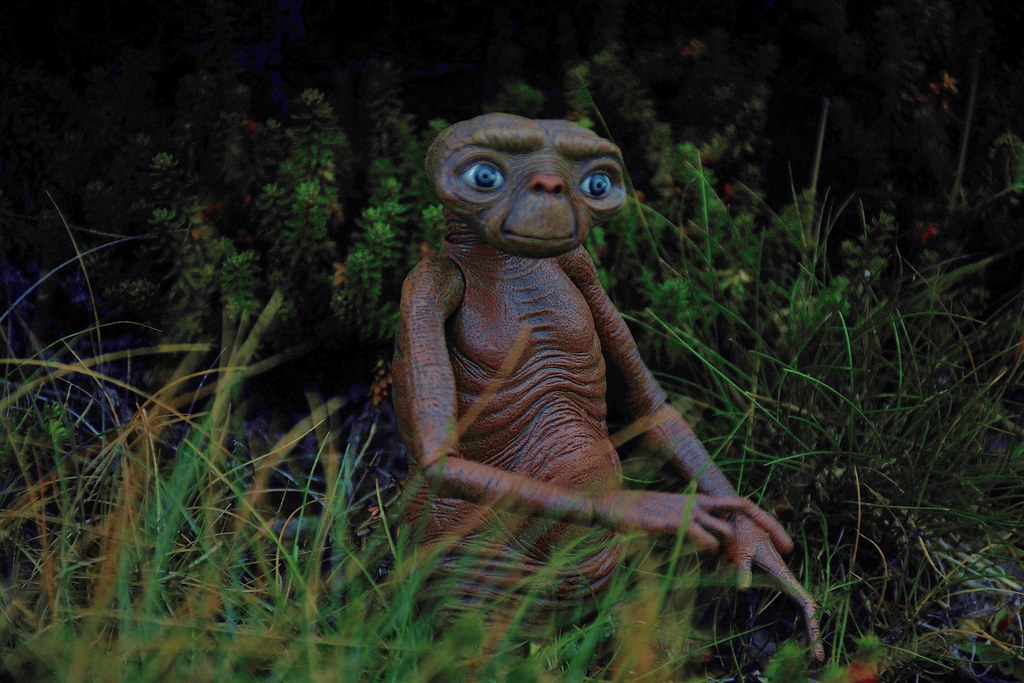
5. **E.T. the Extra-Terrestrial (1982)**Prepare for some serious feels, because *E.T. the Extra-Terrestrial* is “another Spielberg classic” that holds a truly special place in our hearts. This “heart-warming story of a young boy befriending an alien stranded on Earth” isn’t just a tale about a cute extraterrestrial; it’s a universal narrative about friendship, belonging, and the magic of childhood. It’s the kind of movie that reminds you of the boundless imagination you had as a kid.
The film’s enduring appeal lies in its incredibly relatable “themes of friendship and acceptance,” which have “made it dear to audiences worldwide.” It’s a story about finding connection in the most unexpected places, about empathy for the unknown, and about the bittersweet pain of saying goodbye. These are emotions that transcend age and culture, making E.T. a truly global phenomenon.
When it was first released, the “groundbreaking special effects only added to its magic at the time of its release.” Seeing E.T. come to life, or the iconic bicycle flight against the moon, was revolutionary. It wasn’t just visual spectacle; it served the story, making the fantastical feel utterly real and emotionally resonant. The effects were a tool to enhance the wonder, not to overshadow the narrative.
Thinking about a reboot, however, brings up a very real concern: “A reboot would lack so much of the innocence and charm of the original.” In today’s world of hyper-realistic CGI, it’s easy to imagine a new E.T. looking slicker, perhaps even more “realistic.” But would that truly capture the earnest, almost handcrafted feel of the original? The simplicity and pure heart of the 1982 film are precisely what give it its lasting power.
Modern effects, while impressive, often lean towards spectacle over genuine emotion, and that’s the last thing *E.T.* needs. Its charm isn’t about how alien E.T. *looks* but about how human E.T. *feels* through the bond with Elliott. A reboot, by trying to modernize its aesthetic or narrative, risks losing that precious innocence and the heartfelt simplicity that makes the original an untouchable classic for all time.
Read more about: 12 Tear-Jerking Movies That Will Absolutely Wreck You (In The Best Way Possible)
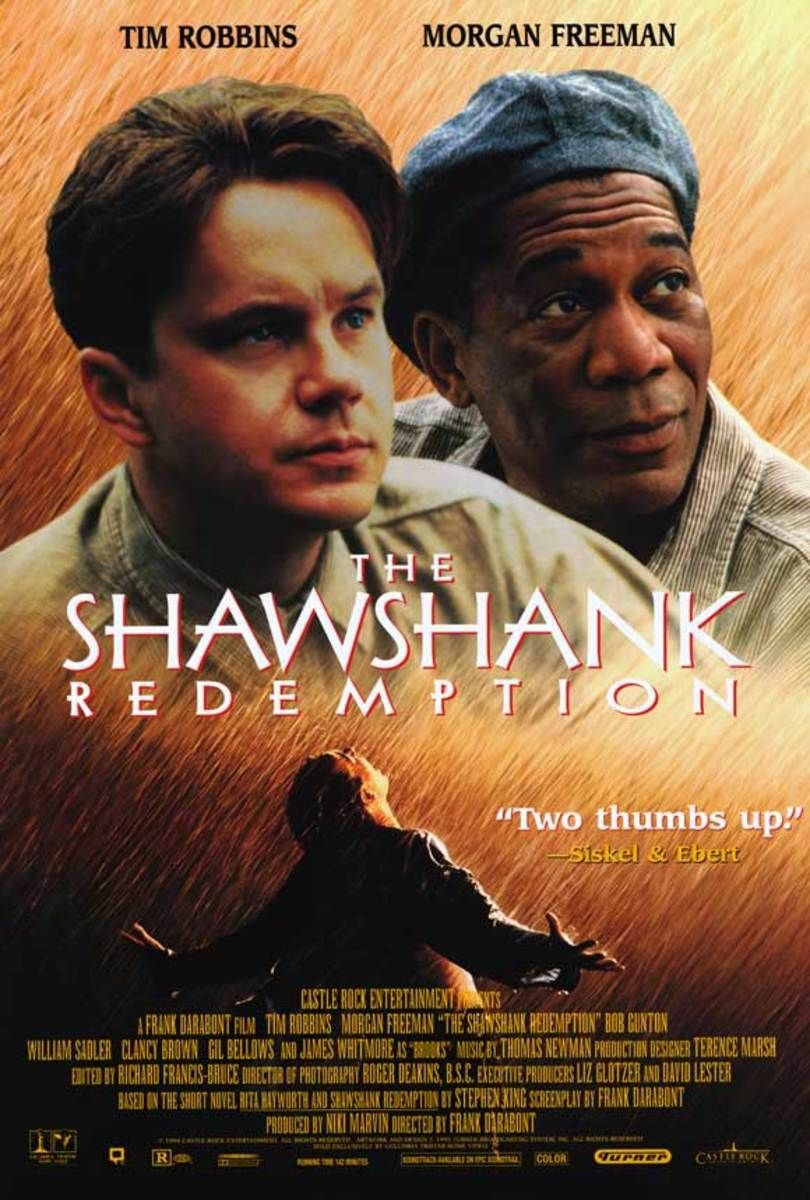
6. **The Shawshank Redemption (1994)**This truly moving tale, adapted from a Stephen King novella, isn’t just a movie about prison; it’s a profound exploration of the human spirit. “The Shawshank Redemption is a hopeful tale of survival inside a prison,” but it’s also about enduring friendship, unwavering hope, and the quiet triumph of the human will against seemingly insurmountable odds. It truly resonates with anyone who’s ever faced a seemingly impossible situation, offering a glimmer of light even in the darkest of corners.
You know those performances that just stick with you, becoming benchmarks for acting? Tim Robbins and Morgan Freeman deliver just that. Their portrayals of Andy Dufresne and Red are simply “iconic,” bringing so much depth, nuance, and genuine emotion to their characters that you can’t imagine anyone else in those roles. The chemistry between them is palpable, creating a bond that feels incredibly real and forms the undeniable, beating heart of this cinematic journey. It’s a masterclass in quiet, powerful storytelling through performance.
The film’s exploration of patience, perseverance, and the long game of justice is frankly unmatched. It reminds us that even in the most oppressive environments, hope can be a powerful, liberating force, a quiet rebellion against despair. It’s a powerful narrative about finding freedom, not just physically through escape, but mentally, through resilience and intellectual strength, even when literally behind bars. The way it builds to its emotional climax is a testament to perfect pacing.
What’s truly incredible is how *The Shawshank Redemption* achieves its monumental impact without relying on explosions or massive special effects. Its strength lies purely in its “wonderful script and well-versed actors,” as the context reminds us. This reliance on fundamental storytelling, paired with the brilliant direction of Frank Darabont, is what makes it shine so brightly. It’s a testament to the power of a compelling narrative delivered with absolute precision.
Given its “enduring popularity and critical acclaim,” *The Shawshank Redemption* has earned its place as one of the most beloved films of all time, frequently topping “best movies” lists for a reason. It captivates audiences with its powerful message and exquisite storytelling, transcending the typical prison drama to become something universal. To attempt a remake would not just be “redundant”; it would be an unnecessary, almost blasphemous, challenge to cinematic perfection that already exists. Let this masterpiece remain untouched.
Read more about: Cinematic Clashes: Where On-Screen Tension Was Palpable and Stakes Were Sky-High
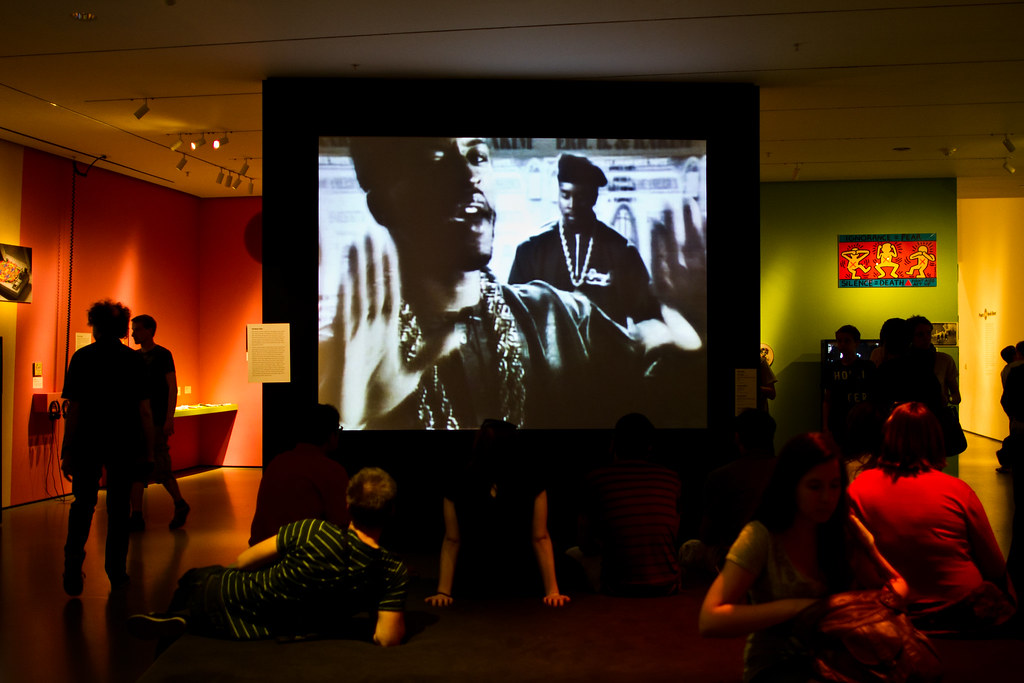
7. **Paid in Full (2002)**Moving into a different, yet equally vital, cinematic landscape, Charles Stone III’s *Paid in Full* offers an unflinching, authentic look at a pivotal era. This “crime drama that investigates the 1980s drug scene in Harlem” is far more than just a genre piece; it’s a raw, vibrant time capsule, a cultural document. It pulls you right into the heart of a bustling, yet dangerous, world, showcasing the complexities of ambition, loyalty, and the relentless struggle for survival on the streets.
What makes this film truly stand out and resonate so deeply is its deep connection to reality. The main characters—Ace (Wood Harris), Mitch (Mekhi Phifer), and Rico (Cam’ron)—are “inspired by real-life figures Azie ‘AZ’ Faison, Rich Porter, and Alpo Martinez.” This foundation in genuine, lived experience gives the narrative an undeniable weight and authenticity that purely fictional stories often struggle to achieve. You feel the stakes because they were once real stakes.
The performances by Wood Harris, Mekhi Phifer, and Cam’ron are absolutely crucial in bringing this authenticity to life. They inhabit their roles with a level of realism and conviction that captures the very essence of these real individuals and the high-stakes, cutthroat environment they navigated. Their nuanced work makes the struggles, choices, and often tragic consequences faced by their characters feel incredibly visceral and true, pulling the audience into their world.
The film’s “authentic portrayal of the era and the culture it represents makes it a standout in its genre.” It doesn’t just tell a story; it immerses you in a specific time and place, with all its unique nuances, iconic fashion, groundbreaking music, and unspoken rules of the street. That kind of raw, lived-in feel is extraordinarily difficult, if not impossible, to replicate. It’s a cultural touchstone for many, preserving a critical period in urban history.
A reboot would truly risk losing this irreplaceable “raw authenticity and cultural significance of the original,” potentially sanitizing or misinterpreting the very gritty elements that make it so powerful. You can’t just recreate that specific energy, that raw emotion, or that sense of genuine history. *Paid in Full* is definitive in its portrayal, and trying to mess with that would be a disservice to its legacy and the true stories it represents. Leave this one as is, folks.
Read more about: The Most Romantic First Kisses That Still Give You Butterflies – And The Wild Stories Behind Them!

8. **Set It Off (1996)**Talk about a film that packs an emotional punch and remains incredibly relevant even decades later! F. Gary Gray’s *Set It Off* is a powerful, often heartbreaking, story of survival, desperation, and unbreakable sisterhood. It boldly centers on “four African American women in Los Angeles who turn to bank robbery because of economic hardships,” a premise that immediately grabs your attention and delves into profound societal pressures with remarkable depth and empathy. It’s a gritty look at what happens when the American Dream feels completely out of reach.
The ensemble cast in this movie is nothing short of phenomenal, truly elevating the material and making it unforgettable. “Jada Pinkett, Queen Latifah, Vivica A. Fox, and Kimberly Elise-all of whom bring great texture and complexity to their roles.” Their performances aren’t just strong; they create a believable and deeply empathetic bond between the characters, making you feel every triumph and every crushing defeat alongside them. This portrayal of sisterhood, resilience, and vulnerability is the undeniable, beating heart of the film.
*Set It Off* fearlessly dives into weighty, crucial themes like “friendship, systemic oppression, and desperation.” It explores how overwhelming economic circumstances and societal barriers can push individuals to extreme measures, all while celebrating the unyielding strength found in loyalty and camaraderie amidst adversity. This powerful exploration “really comes across very well to an audience,” sparking important conversations and leaving a lasting impression that lingers long after the credits roll.
Beyond the stellar acting and compelling plot, the film holds immense cultural relevance. It offered a unique and necessary perspective, showcasing complex female characters navigating impossible choices in a system rigged against them. It wasn’t just a heist movie; it was a statement, a reflection of real struggles faced by many. The film cemented its place in cinematic history for its bold narrative and its unapologetic portrayal of women taking agency in dire situations.
A remake, no matter how well-intentioned or talented the new cast, would face an almost impossible task. The original captures a specific moment, a unique cultural resonance, and a raw emotional authenticity with such precision that it feels definitive. “A remake simply could not capture all that emotional power and cultural relevance of the first movie,” potentially diluting its powerful message and failing to replicate the unforgettable, groundbreaking performances that make it a true classic. Some stories are just meant to be told once, and perfectly.
Read more about: The Dark Side of the Hero: 13 Films Where Protagonists Unmask Their Own Villainy

9. **Scarface (1983)**Alright, say hello to another absolute classic that Hollywood should definitely keep its hands off – with extreme prejudice! Brian De Palma’s *Scarface*, written by the legendary Oliver Stone, is more than just a crime film; it’s a monumental cultural phenomenon. It vividly chronicles “Tony Montana’s rise and eventual fall in the Miami drug world,” a brutal, operatic journey filled with excessive ambition, insatiable greed, and unforgettable drama. This movie isn’t just watched; it’s an immersive, intense experience that defines an era.
And let’s be real, Al Pacino’s performance as Tony Montana is pure cinematic lightning in a bottle, a tour de force that few actors could ever hope to replicate. His “iconic performance” is a masterclass in portraying a character driven by insatiable greed, a twisted sense of loyalty, and a tragic hubris. “Say hello to my little friend!” isn’t just a line; it’s an indelible part of global pop culture, emblematic of the film’s “graphic violence” and its fearless, no-holds-barred attitude. Pacino didn’t just play Tony Montana; he became him, embodying the character with an intensity that burns off the screen.
The film’s influence on pop culture, particularly in music, fashion, and even language, is undeniable and widespread. *Scarface* isn’t merely a story about a gangster; it’s “one of the most iconic films of the 1980s” that helped define an entire era’s aesthetic and ethos. Its bold, flashy style, intense narrative, and uncompromising vision cemented its place as a groundbreaking piece of cinema that continues to inspire and provoke. It’s a visceral, immersive experience that leaves you thinking, and quoting, long after the credits roll.
The sheer visceral power and audaciousness of the original *Scarface* are almost impossible to match. The film’s boldness in depicting explicit violence and drug use was groundbreaking for its time, pushing boundaries in a way that truly shocked and captivated audiences. This raw, unfiltered approach is integral to its impact and its lasting legacy, making it a difficult act to follow without seeming either redundant or watered down.
“Scarface is too strong and raw, too meaningful and important culturally, to even think about reboots pulling it off.” The original captures a gritty, over-the-top, yet deeply tragic tale with such definitive flair that any attempt to recreate it would feel hollow, a pale imitation of the genuine article. It’s “one of those films that defines the era,” and trying to update or reinvent it “would serve no justice to the original.” Some stories are just told perfectly, definitively, the first time around, and *Scarface* is absolutely one of them.
Read more about: Beyond the Limelight: 15 Celebrities Who Bravely Served in the Vietnam War
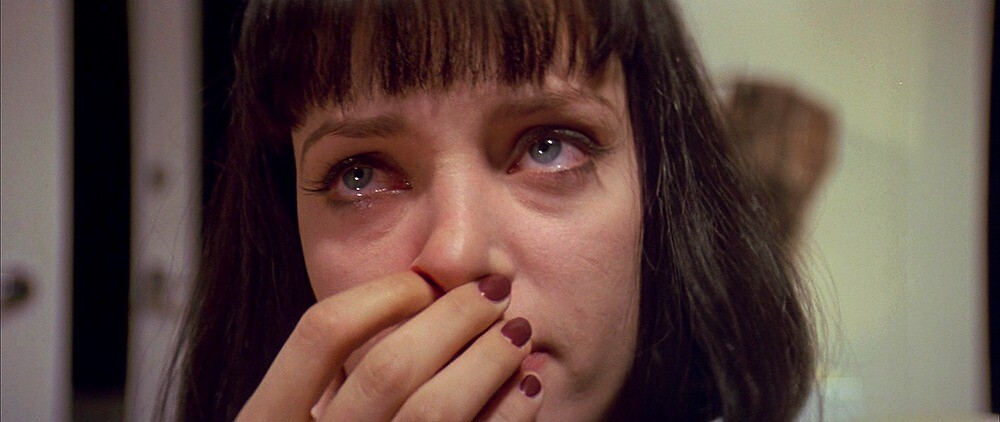
10. **Pulp Fiction (1994)**And finally, rounding out our list of untouchable classics, we have the one and only *Pulp Fiction*. Quentin Tarantino didn’t just make a movie; he quite literally redefined cinema with this “non-linear tapestry of crossing stories.” It’s a film that’s as famous for its “sharp-witted dialogue and eclectic soundtrack” as it is for its groundbreaking narrative structure, instantly becoming a cult classic and a benchmark for independent filmmaking. Seriously, this movie isn’t just a film; it’s a whole cultural event, a vibe, an era.
The dialogue in *Pulp Fiction* is so incredibly distinct, stylized, and quotable that entire conversations can be carried out using just its lines – you know it’s true! Each exchange is a masterclass in rhythm and character development, pulling you deeper into Tarantino’s uniquely twisted world. And the soundtrack? It’s a character unto itself, a perfectly curated collection of eclectic tunes that flawlessly complements every scene, further cementing the film’s unforgettable, iconic aesthetic. It’s a triumph of cinematic sound design.
The cast, oh the cast! “The ensemble cast comprises John Travolta, Uma Thurman, and Samuel L. Jackson, who are instantly identifiable with 1990s cinema.” Their performances are not just good; they are iconic, creating characters that are both deeply flawed, morally ambiguous, and utterly captivating. Who can ever forget Mia Wallace’s effortlessly cool dance, Jules Winnfield’s philosophical, Bible-quoting musings, or Vincent Vega’s perpetually chill, yet dangerous, demeanor? They’re indelibly etched into our cinematic consciousness.
“Due to its unique style and narrative structure, no other film can beat it or even touch its individuality.” *Pulp Fiction* isn’t just a movie; it’s a cinematic event that brazenly broke traditional narrative rules and set entirely new standards for storytelling. It ushered in a wave of imitators, but none could ever quite capture its original magic and originality. It influenced a generation of filmmakers and continues to be analyzed, dissected, and celebrated for its sheer brilliance and audacity.
Attempting a reboot or remake of *Pulp Fiction* would be like trying to repaint the Mona Lisa or rewrite a classic novel – utterly pointless, disrespectful, and almost guaranteed to diminish the original’s peerless artistry and cultural weight. Its “individuality” and sheer impact are so profound that it exists in a league of its own, forever an unchallengeable icon of 90s cinema. Let this masterpiece stand tall, just as Tarantino intended, for all future generations to discover, re-watch, and adore in its perfect, original form.
Read more about: The Dark Side of the Hero: 13 Films Where Protagonists Unmask Their Own Villainy
So there you have it, folks! Our deep dive into these ten cinematic treasures that Hollywood should, without a doubt, keep its hands off. From heartwarming sci-fi adventures to gritty crime sagas and profound historical dramas, these films aren’t just entertainment; they’re cultural landmarks, artistic achievements, and moments in time. They’ve captured our imaginations, sparked endless conversations, and ingrained themselves into the very fabric of our shared cinematic experience. While we appreciate the occasional genius of a reboot, and sometimes a fresh take can be a blast, these specific masterpieces have already achieved something truly unrepeatable, something that simply cannot be improved upon. Let’s celebrate their original glory and cherish them for exactly what they are: untouchable classics that deserve to shine brightly, eternally, in their perfect, unadulterated forms. Here’s to preserving true cinematic magic for generations to come!

